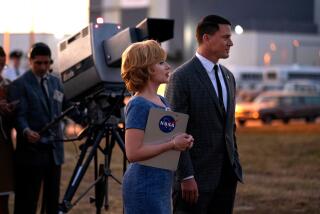Beyond the Moon
- Share via
Twenty-one years ago, someone sitting down to imagine how mankind would commemorate the 20th anniversary of the first moon landing might have envisioned all sorts of solemn or silly celebrations. It is hard to believe, however, that anyone could have foreseen the pale, rather grudging memorials of the past week.
On the other hand, no futurist or science-fiction enthusiast ever imagined that man would go to the moon and, then, simply stop going.
The reasons for this surprising turn of events probably are several, and the first among them can be deduced from the fact that this week’s anniversary observances were almost exclusively American affairs. Neil Armstrong may have said, “We come in peace for all mankind,” but mankind knew that, by and large, Americans went to the moon to beat the Russians. For many of us, the moon’s frigid wastes were not so much a new frontier as another front in the long Cold War. And, as Vietnam, a different theater in that conflict, grew hotter and more expensive, attention and money flowed that way.
Amid the disenchantment engendered by an unresolvable war in Southeast Asia and unresolved social turmoil at home, the moon landing became not so much a symbol of our technological civilization’s progress as a metaphor for its limitations: If we can send a man to the moon, why can’t we . . . ?
But the lunar landing also had its unexpected benefits, not the least of which was a perceptual awakening to concerns that have matured in recent months into a new, global preoccupation with our common environment. When man first stood on the moon, it was a moment fraught with both infinite and intimate possibilities. In one direction lay the unimaginable void of space, in the other this planet’s luminous beauty. For the first time, most of us saw the whole Earth as it is--finite and fragile. It is the memory of that sight and not of the stars beyond that we retain as the primary artifact of the space program. Poised on the edge of infinity, mankind turned and looked homeward.
In the solutions he is beginning to discover here, there is a firm suggestion of how to manage a reentry into space. Just as no single nation can solve the world’s environmental problems, no one country has sufficient talent or resources to undertake a thorough program of space exploration on its own.
If Americans ever do set foot on another planet, it should be not just for , but with the rest of mankind.
More to Read
Sign up for Essential California
The most important California stories and recommendations in your inbox every morning.
You may occasionally receive promotional content from the Los Angeles Times.













